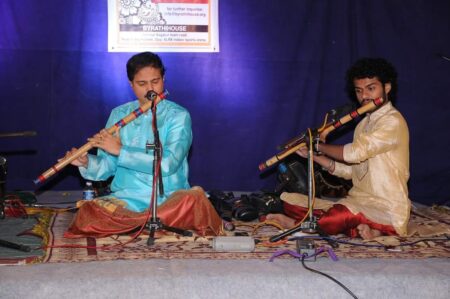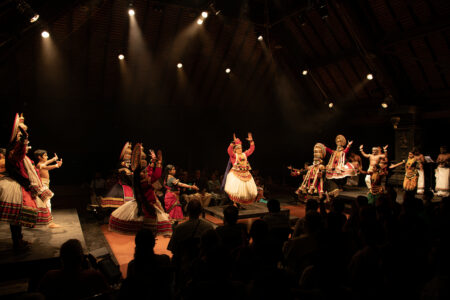Immunity is all set to become a coveted commodity in the post-Covid world where sociologists fear the immunity-haves will enjoy hegemony over the immunity-have-nots. What is really at stake here? How immunity inequality can make or break economies across the world? Read on.
Global conversations about Covid-19 mostly revolve around the number of cases, deaths, vaccination and its side effects. While all these are important topics for discussion, what we need to actively address is the social impact that the pandemic is having on the people of the world and, more importantly, the possible problem of immunity inequality.
In fact, it was the latest Annual Letter from Bill Gates and Melinda Ann French that turned the spotlight on immunity inequality recently. The philanthropists said they were “deeply concerned.. that in addition to shining a light on so many old injustices, the pandemic will unleash a new one: immunity inequality…”. Bill and Melinda warned of a future where the “wealthiest people have access to a Covid-19 vaccine, while the rest of the world doesn’t”.
Capitalism and immunity in a globalised world
There is consensus among economists and sociologists that in the post-pandemic world, where capitalism will target foolproof health markets, immunity is going to be an important commodity. One thing that the pandemic has proven is that, like it or not, each and every individual inhabiting this world is connected through germs and viruses. A virus that originated in Wuhan, China, proliferated and reached the other side of the world, gradually affecting the entire global population. The Covid-19 pandemic is, in many ways, different compared to all the other infectious disease outbreaks that the world has ever encountered.
A detailed study about the factors that influence globalisation, throws light on the fact that a virus outbreak cannot be ignored in a globalised world. The demolition of the Berlin Wall just before 1990, marked the end of the Cold War and the beginning of unprecedented human interaction. There’s no denying that this period gave rise to a whole new world of economic growth opportunities for various social groups. However, the opportunities did not reach all of these groups. In fact, it created higher health risks gradually.
This goes to show that social experiences come with a cost which populations from the mid- and lower level of economic strata will not have access to, in the post-pandemic world. A classic Marxist problem, this divide is bound to give rise to new ‘immunity haves’ and ‘have nots’ in these unprecedented times. The most current and ongoing example of this divide is the access or lack thereof to the Covid-19 vaccine. This inevitably highlights the fact that immunity in the post-pandemic world is going to be a very precious commodity.
Immunity inequality and its effect on economies
How is this a problem, you ask? Access to immunity, affordability for immunisation and sustainability of immunisation are all potential precious commodities in the post-pandemic world. An interesting analysis, authored by Jordan Liz of the San José State University in the US and published in February 2020 in the journal of History and Philosophy of the Life Sciences, discussed the perils of immunity passports, and how it has raised concerns regarding their potential “social, political and economic ramifications, especially for marginalized communities”. The paper, ‘Covid‑19, immunoprivilege and structural inequalities’, suggested that immunity inequality could restrict how people access work, housing, and even where “one could shop for essential goods and services”.
In a way, this is happening now. Noting that Qantas, an Australian airliner, has said it will ask for proof of Covid vaccination from passengers who travel internationally on its flights, Liz said such measures would “disproportionately harm the global poor who will likely have limited access to the vaccine”. So, if you look at the global picture, a destination where immunity is naturally occurring, will be preferred by businesses. This, in turn, will define how people get jobs and move ahead in their careers or move geographical locations to set up enterprises and so on.
Furthermore, if newer variants of the coronavirus emerge in countries like ours, immunisation will not be able to tackle them. In this case, if India is home to a deadly dominant variant, technological and economic advancement will be far-fetched realities in the country. Also, if young Indians wish to study abroad, they will need to prove that they are not potential bio threats. If they hail from the economically challenged sections of the society, despite their aptitude, they might risk not being able to travel abroad due to a lack of immunity. This puts forth the argument that we might be staring at a first, second and third world scenario when it comes to immunity as well.
What can be done to curb this?
It is important to acknowledge that we are witnessing the emergence of a very different world order with geo-politics blending into bio-politics in the wake of the Covid-19 crisis and the race for vaccine pelf. In order to curb the social, cultural and economic impacts of such a scenario, governments and health organisations need to prioritise immunising the second and third world populations.
Doing this will
Ensure that these populations don’t face the threat of getting geographically and economically stagnated due to a lack of immunity
Reduce the risks of newer variants of the virus sprouting and spreading to other parts of the world
Bridge the gap between the wealthy and the economically challenged sections of the society.
But that’s easier said than done. ‘How can the world allocate COVID-19 vaccines fairly?’ asks an analysis by experts at the Penn University in the US. “How do countries ensure that their most vulnerable—people who, in many instances, have historically been overlooked or mistreated—get the vaccination? How do countries prevent exacerbating persistent inequities?” That’s a big ask, as things stand now.
There is also the concern of vested interests using science and intellectual property rights (over the vaccines) for amassing wealth, leading to inequalities of many hues. And, alas, in the dock here are many businessmen including Bill Gates, who is a staunch votary of copyrights. Gates feels only strict enforcement of copyrights will help research and development of healthcare solutions such as vaccines. But proponents of open science and copyleft say that’s counterproductive, especially during a pandemic such as this and only an open attitude towards creation and distribution of immunity can serve the greater common good.




